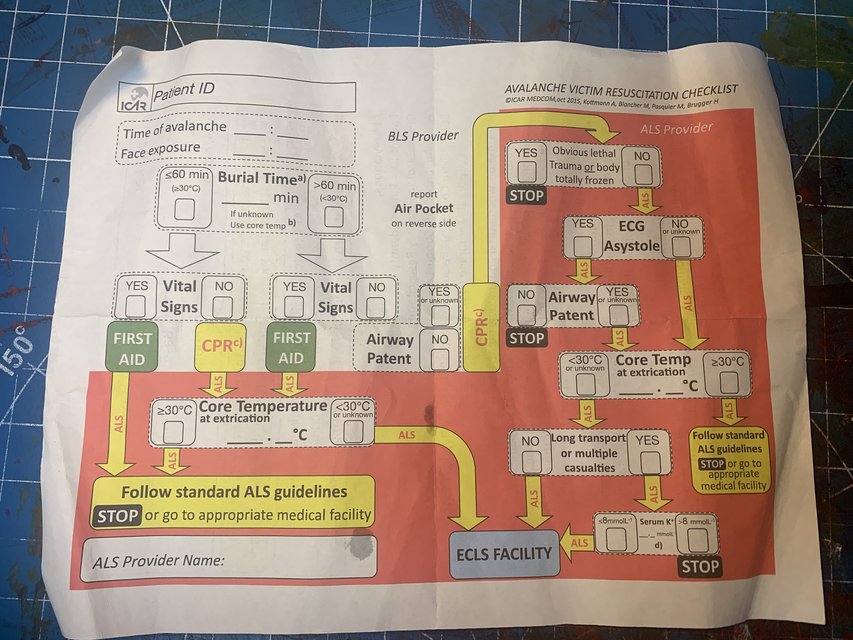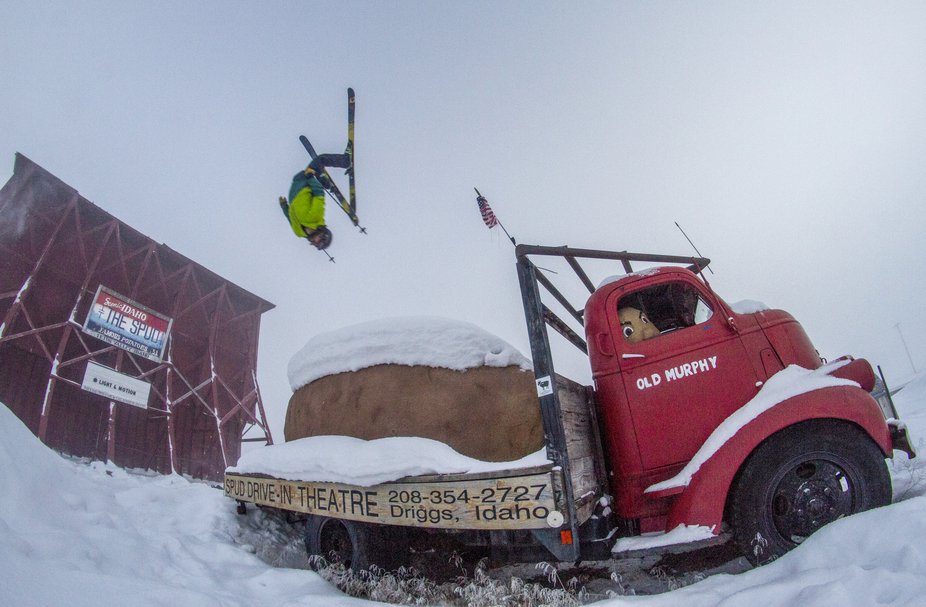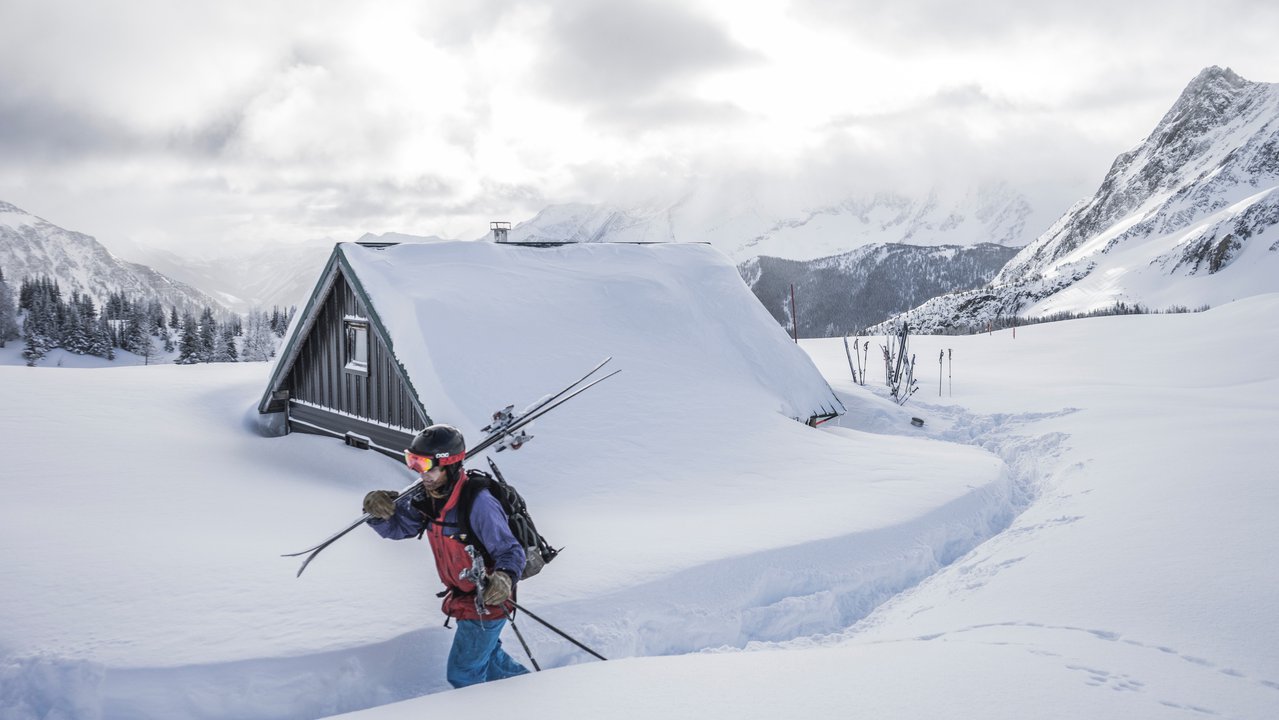Wiser writers than I have penned plenty of prose about the soul of mountain towns and how it’s under attack from over-development, under-appreciation and a host of other factors. So I won’t rehash that at length. It’s pretty obvious to all of us that the challenges of living and working in a mountain town have grown and changed, and recently the ratio of frustration and inconvenience to reward has gotten more out of whack than ever before.
But what can we, lowly skiers, who center our pastimes around the amenities that these towns provide really do about it? We can’t stop billionaires from buying up businesses. We can’t stop out-of-state developers from gobbling up affordable housing. Hell, we can’t even do much about things like overpriced parking passes and gutted park crews.
I’m not interested in just throwing up my hands and giving up though. I’m not quite ready to admit defeat and give up on mountain towns. The situation reminds me of this flowchart that lives in the front pocket of my SAR jacket. I fit solidly into the “BLS” side. I can only provide Basic Life Support, and then transport patients to a more advanced provider.

So we get to the scene of an avalanche that’s already occurred as quickly as possible. We help locate and dig up anyone involved. And then I have this complicated looking chart that basically just tells me: “If they seem dead, do CPR, if they seem alive, try to make them comfortable.” It’s more devastating when it’s distilled to that level. But, on scene, we’ll always default to CPR both because the chances of it working aren’t quite zero, and because it gives any friends and family (and to a lesser extent, other rescuers) some modicum of hope. And I’ll work for hope, no matter how small, any day.
So next time you head to some small municipality for your weekend of skiing, think about what CPR you can do. Here are some actionable steps:
Consider your housing options carefully
The unfettered proliferation of short term vacation rentals is inarguably a net negative for mountain towns. Once vibrant neighborhoods are now gutted by short term rentals turning over every few days to make a profit, driving prices up, and driving lower income workers out. If at all possible, don’t stay in one. If you do need to stay in one, think about its impact on the community you’re visiting. Attached units, like a basement in someone’s full-time home, have a much smaller impact on the housing market. Similarly, on-mountain condos aren’t doing quite so much to drive out any hope of affordable housing for full-time residents. And if you’re set on a standalone unit, do your research. Plenty of folks rent out their full-time home for a few weeks here and there. That’s much better for the town than predatory outside investors who buy up homes to manage them as short term rentals from afar. Don’t give those people your money.
When possible, stay in a hotel or a hostel. Often they offer better access to the mountain, are more convenient, and have a much smaller impact on regional housing markets.
Tip Well
I get it. You’re a crusty ski bum who scrimped and saved for this ski vacation. You don’t have any extra cash to throw around. If that’s actually the case, don’t go out to eat. Eating ramen and saltines is core.
So often I hear the “why should I tip well, they’re living the dream?” argument. And I absolutely hate it. Maybe, on the surface it looks like service industry workers in ski towns are living a dream that you lust after. But most of them are sacrificing a lot to live that dream. And your jealousy of their lifestyle doesn’t negate the fact that it’s damn hard to find housing, find community, balance your mental health, and make a living in the service industry in mountain towns. The proliferation of “help wanted” signs on every business in every ski town I’ve been to this winter makes that clear. Treat people well. Tip them well. Or drink cheap beer you bought from the grocery store, and eat your hot dogs and cup noodles like a real ski bum.
Plan Ahead
The pandemic accelerated a whole bunch of issues that were already coming to a head in ski towns. The best way to both ensure a positive visit for yourself, and do right by the people you interact with is to plan ahead. Find out if you need to reserve your lift ticket online first, instead of haranguing the person at the window. Make reservations at restaurants as far in advance as you’re capable of, instead of showing up and chewing out the staff for not having a free table for you. The internet exists. Use it. Plan ahead, make your life easier, and make it easier to be kind to the people you interact with.
Don’t Fake It
If you don’t live in a mountain town, that’s fine. Being unabashedly “on vacation” will earn you a lot more love than trying to somehow equivocate your occasional visits with being “a local.” Nobody thinks you’re cooler because you “come here a lot” or “are working from home here for a few weeks.” It’s ok to just visit these places and go back to your real life. But it grates heavily on the people struggling to actually make their lives in this town when you try to build your experience into something it's not. Be kind.
Use Public Transportation
If mountain towns are going to survive into the next decade, they need more people invested in using their public transportation. Busses, shuttles, and trains are better for the planet, better for traffic, and better for towns. Use them. Follow the rules on them. Be nice to fellow passengers and the driver. They’re great.

If you do need to drive, don’t park like an asshat. Something about going on vacation makes people completely forget how to park. Park efficiently, with just enough space between you and other cars to open your doors. If you don’t, folks will look at your out of state plates taking up three spaces and mock you all day. This goes doubly for big vans. And if you’re not going to actually sleep in your van, consider bringing a smaller car. It’s better for parking, it’s better for the planet, and it’s better for making everyone think you’re not a douchenozzle. Nothing riles up the hometown crowd like a hundred thousand dollar van with out of state plates taking up three parking spots in a residential neighborhood while the owners party in their short term rental.
Think about where your money’s going
The line between mountain town and company town is thin and getting thinner. Big conglomerates try to eat up all the real estate and ensure that everything you spend money on funnels back to them. That’s bad for the longevity of mountain towns. If you rent lodging from the same company that you bought lift tickets from, and also buy all your food at resort restaurants, you’re not doing any good with your money. Try to eat and shop off the mountain, at independently owned businesses. Buy a deli sandwich at that little grocery store down in the valley, instead of spending more money for a shitty resort burger. It’s the little things, but they do count.
Get Informed
If you love a place enough to plan an expensive trip around it every year, you should care enough to know what’s going on there year round. Plug in to local facebook groups. Follow local journalists on Instagram and Twitter, and consider getting a subscription to a local paper. Even if you’re just visiting for two weeks every winter, knowing what’s going on the rest of the year will inform your visit. You’ll have a better grasp of the challenges a place is facing, and how your actions can allay or exasperate them.
Visit somewhere different
Mega resorts suck. Consider not giving them your money. There are alternatives that might even get you a better skiing experience. The Indy Pass is a great alternative to an Epic or Ikon. And a weekend somewhere like Pebble Creek, Discovery, Lost Trail, Maverick, Pomerelle, or Kelly Canyon is going to cost less, and be less stressful than another routine trip to the Vails, Breckenridges, and Snowbirds of the world. Change it up, go somewhere independently owned where people ski because they love skiing, not because they love telling everyone that they went somewhere famous on their ski vacation.
Empathy
It all comes down to empathy. Skiing shouldn’t just be exploitive, all about getting the “best” experience for me and my friends at everyone else’s expense. A little thought and a little kindness goes a long, long way. The people you interact with will thank you, you’ll have a better skiing experience, and you’ll be doing your small part to keep the places you love visiting worth living in.


Comments